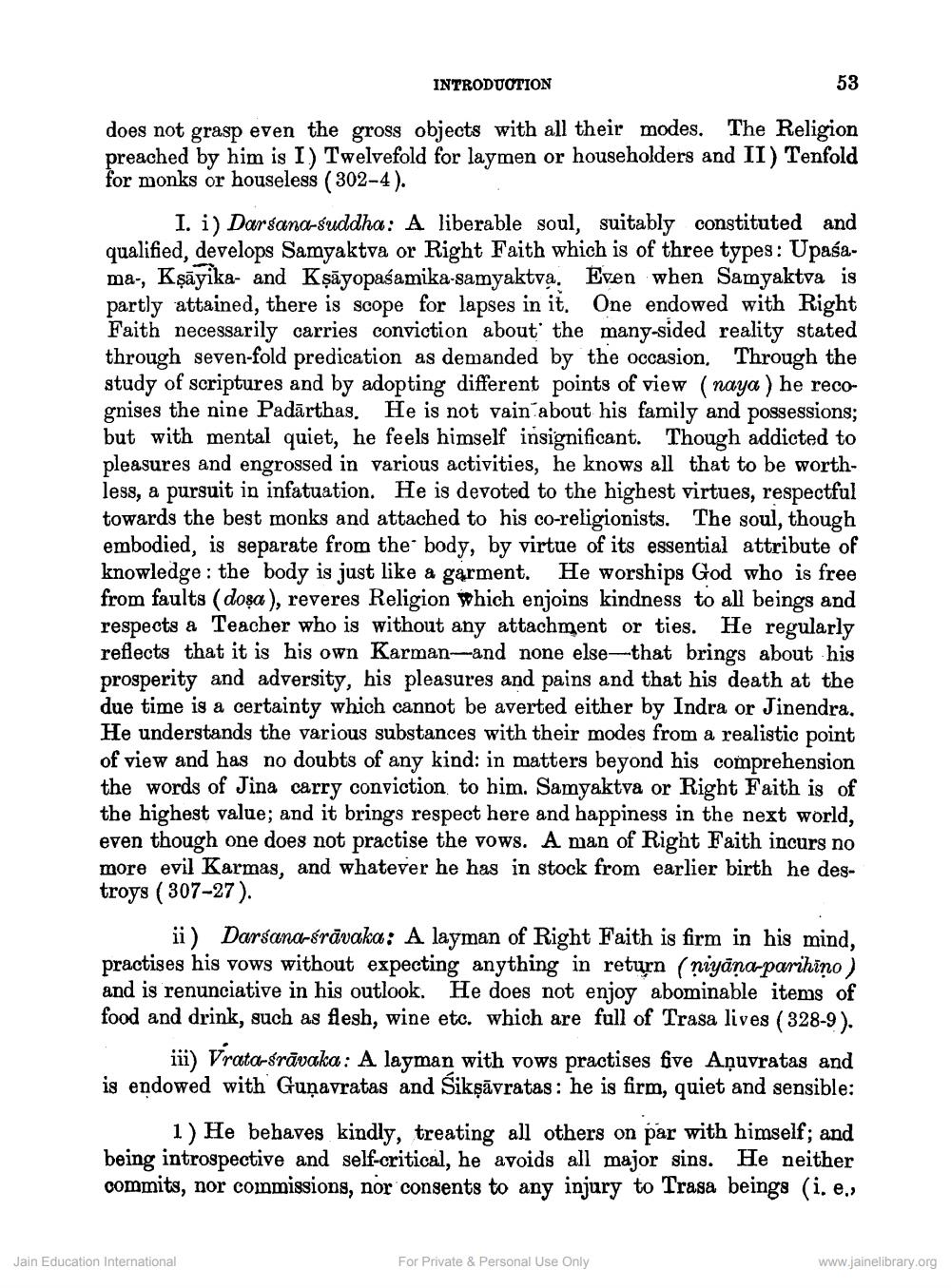________________
INTRODUCTION
53
does not grasp even the gross objects with all their modes. The Religion preached by him is I) Twelvefold for laymen or householders and II) Tenfold for monks or houseless (302-4).
I. i) Darsana-suddha: A liberable soul, suitably constituted and qualified, develops Samyaktva or Right Faith which is of three types: Upasama-, Kṣāyika- and Kṣāyopaśamika-samyaktva. Even when Samyaktva is partly attained, there is scope for lapses in it. One endowed with Right Faith necessarily carries conviction about the many-sided reality stated through seven-fold predication as demanded by the occasion. Through the study of scriptures and by adopting different points of view (naya ) he recognises the nine Padārthas. He is not vain about his family and possessions; but with mental quiet, he feels himself insignificant. Though addicted to pleasures and engrossed in various activities, he knows all that to be worthless, a pursuit in infatuation. He is devoted to the highest virtues, respectful towards the best monks and attached to his co-religionists. The soul, though embodied, is separate from the body, by virtue of its essential attribute of knowledge: the body is just like a garment. He worships God who is free from faults (dosa), reveres Religion which enjoins kindness to all beings and respects a Teacher who is without any attachment or ties. He regularly reflects that it is his own Karman-and none else--that brings about his prosperity and adversity, his pleasures and pains and that his death at the due time is a certainty which cannot be averted either by Indra or Jinendra, He understands the various substances with their modes from a realistic point of view and has no doubts of any kind: in matters beyond his comprehension the words of Jina carry conviction to him. Samyaktva or Right Faith is of the highest value; and it brings respect here and happiness in the next world, even though one does not practise the vows. A man of Right Faith incurs no more evil Karmas, and whatever he has in stock from earlier birth he destroys (307-27).
ii) Darsana-srāvaka: A layman of Right Faith is firm in his mind, practises his vows without expecting anything in return (niyāna-parihino) and is renunciative in his outlook. He does not enjoy abominable items of food and drink, such as flesh, wine etc. which are full of Trasa lives (328-9).
iii) Vrata-srāvaka: A layman with vows practises five Aņuvratas and is endowed with Guņavratas and Sikşāvratas: he is firm, quiet and sensible:
1) He behaves kindly, treating all others on par with himself; and being introspective and self-critical, he avoids all major sins. He neither commits, nor commissions, nor consents to any injury to Trasa beings (i. e.,
Jain Education International
For Private & Personal Use Only
www.jainelibrary.org




